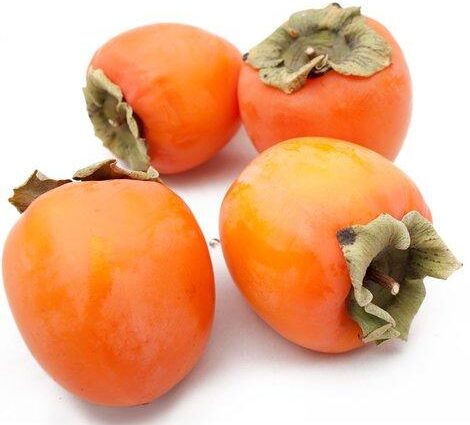Contents
How and where to store persimmons correctly?
Despite the external softness and tenderness, persimmons, if stored properly, can retain their freshness for several months. In this case, we are talking about ripe and unripe fruits. Overripe persimmon practically does not lend itself to storage. You must refuse to buy it or eat it right away.
Persimmon can be stored:
- dried;
- frozen;
- chilled.
Persimmons can be stored at room temperature or in the refrigerator. The optimal temperature regime for fruits is considered to be a level from 0 to +1 degrees. In the refrigerator, persimmons should be stored in the fruit compartment and temperature extremes should be avoided. At the same time, the air humidity should reach 90%.
The nuances of persimmon storage:
- persimmons will better retain their freshness if the fruits are regularly ventilated (lack of oxygen can shorten the shelf life of fruits);
- if there are a lot of persimmons, then you can store it on the balcony in a wooden box with holes, so that there must be sufficient ventilation inside it (persimmons can be sprinkled with a small amount of sawdust, and the fruits of the lower row should be placed “cup” down, and the top one – “cup” up) ;
- if persimmon is stored in the refrigerator in close contact with other fruits, then it should be eaten as soon as possible (the process of ripening and further decay will be carried out at a rapid pace);
- if the persimmon does not provide a sufficient level of air humidity, then the fruits will quickly begin to dry out, and their surface will be covered with fine wrinkles;
- when storing persimmons in the freezer, the astringent astringency leaves the fruits, and they become sweeter (persimmons frozen in sugar syrup are well stored);
- after freezing, the pulp of persimmon can disrupt its consistency (the taste will not change or deteriorate);
- one of the ways of storing persimmons is drying (the peel is first removed from the fruits, and then they are dried in the oven for 40 minutes at a temperature of 45 degrees);
- tomatoes and apples will help to make the persimmon sweeter (persimmon is placed with them in one paper bag for several days);
- – under the influence of heat, the astringent astringency of persimmons increases (that is why persimmon jam has a rather specific taste);
- it is not worth removing the stalks from the persimmon (their absence will shorten the shelf life);
- you can store persimmons in the refrigerator in open containers or paper bags (the lack of oxygen can accelerate decay, therefore, it is not recommended to use plastic bags in which condensate accumulates);
- hard persimmons that do not contain pits are stored longer than soft persimmons.
How much and at what temperature to store persimmons
Persimmons can be stored fresh, frozen, chilled or dried. If the fruits have been frozen, then they must not be re-frozen. The defrosting process should be accompanied by immersing the fruit in cold water. If you wait for the ice to dissolve at room temperature, then the fruit may change its taste, and the aroma and characteristic taste will become less pronounced.
In the refrigerator, fresh persimmons are stored for 2-3 months at a temperature of no lower than 0 and no higher than +1 degrees… This is the temperature for the fruit compartments. Persimmons should not come into contact with other fruits, they should be stored separately. When fruits come into contact with fruits, their shelf life will not exceed several days.
Persimmons are stored at room temperature for several days. To preserve juiciness and freshness, it is better to place the fruits in the darkest and most ventilated areas in the apartment. During storage, the fruit should be viewed regularly. If the fruits show signs of rotting or they become too soft, then they must be isolated or eaten.










